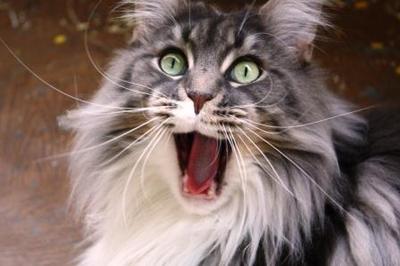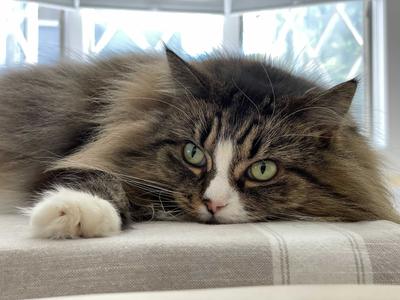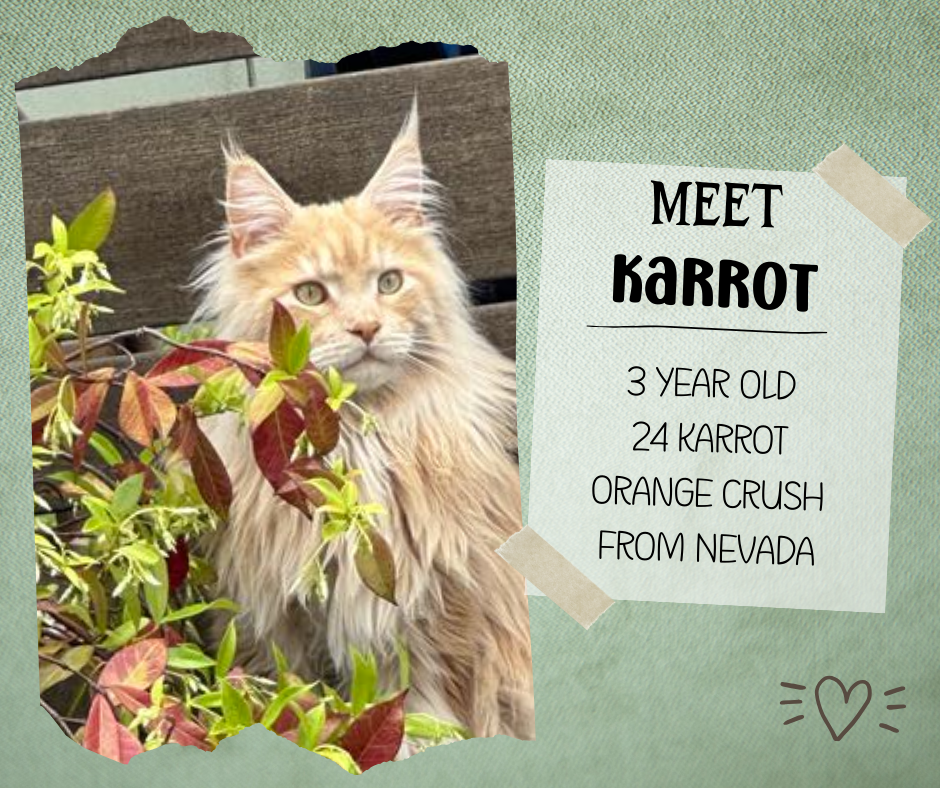- Home
- Maine Coon Community
Welcome, Maine Coon Cat Lovers!
Whether you own, have owned, plan to own, or simply admire Maine Coon Cats, you are a part of Maine Coon Cat Nation!
Future Member's Area!
We are very excited to be in the planning stages of creating a Members Area for MCCN!
It will be a private place to connect with other Maine Coon parents, ask questions, share photos and advice, and more.
This site is very interactive! On this page, you'll easily find all the places to share.
Some of our most popular pages are created by Maine Coon Cat Lovers; visitors to this site!
The best part? There is no registration, logging in, or giving out your email address. Just hop right on in!
This site is very interactive! On this page, you'll easily find all the places to share. Some of our most popular pages are created by Maine Coon Cat Lovers; visitors to this site!
The best part? There is no registration, logging in, or giving out your email address. Just hop right on in!
Ask A Question; Answer A Question!

Maine Coon Cat Fans want the best for their cats, and that translates into lots of questions!
From behavior and nutrition, to grooming or introducing a new kitten, there are lots of cat questions for you to browse, and perhaps leave your comment on.

A visit to Maine Coon Cat Nation would never be complete without checking in on the latest Photo Album!
Comment on a cat or kitten, and don't forget to add your Maine Coon if you haven't yet!

This is a place for visitors to share all their favorite 'stuff.' What are your faves for these big cats?
Maybe you have a great water dish that your Coonie doesn't dump out, or a homemade tip or trick?
Here, we get together and share as Maine Coon Community!

Maine Coon Cat Lovers from all over the world are meeting and greeting each other on the pages of Maine Coon Cat Nation.
So, it's only fitting that we add this page just for meeting other Maine Coon cat fans!
Come on in, say hello, welcome others, and just hang out!

Your funny cat stories are here! What silly antics does your cat do? Share your story, or comment on others.
Maybe Maine Coon, Maine Coon Mix?

Many visitors find their way to this site during their research of Maine Coon characteristics.
They are trying to decide if their cat is a Maine Coon Cat. Although a purebred Maine Coon kitten always comes from a breeder, many of these rescue kitties have unknown parents.
Have a look at some pictures, and tell these cat owners what you think. Is their cat a Maine Coon or Maine Coon mix?
 |
Thankful Coonies 2022: Here is the place to see and share what our fur-friends are most grateful for! It's a fun way to celebrate Thanksgiving together, or just to practice the power of gratitude and celebrate our feline family members. |
Add yours and be part of our Thanksgiving morning celebration where we will post and announce it on our FaceBook Page (Twitter and Instagram, too) and send out an email to our email subscribers.!
Even if you don't celebrate Thanksgiving, this is a great way to celebrate our community and spread that wonderful feeling of gratitude.
And if that's not enough, visit our first Thanksgiving page from all the way back in 2011, Thanksgiving Cat Thoughts, for even more.
PAWSitive Passages & The Maine Coon Blog
The Maine Coon Blog is how we keep in touch! When a community member asks a question or posts their cat to our Photo Albums, we'll let you know with a short email. Get caught up with what's new on the site, fresh tips & special articles.
You'll find an invitation to join us on every page 🐾 🐾
PAWSitive Passages is our upcoming new email group where we will share frequent feel-good pet related thoughts, quotes and photos. It's connected to our PAWSitive Etsy shoppe, so it's a good fit for any pet parent!
There are other places to share, too. Invitations are sprinkled throughout the site, so you can have your say.
Also, we have a Visitor Sharing feature. Just visit this invitation to let us know your thoughts on any Maine Coon subject or page on the site. We'll add your entry to it's relevant 'parent page.'
So have fun exploring! It's almost a Maine Coon Cat forum, but better. No registration, just a free Maine Coon Cat Community.
Recent Articles
-
Beauties in The Spring Album
Apr 22, 24 07:18 PM
-
🐱 Are Maine Coon Cats Mean?
Apr 17, 24 12:19 PM
Are Maine Coon Cats mean? Has anyone ever told you these cats are wild, aloof, grumpy, or mean? Here are the facts about aggression and breed temperament. Let's talk about the arrogance myth! ⬇️

-
🐱 Flea Control Products in 2024
Apr 06, 24 07:04 PM
In many parts, spring has sprung and it's time to think about how we are going to deal with fleas this upcoming season. Flea treatments and flea control aren’t necessary in every household, but for fa…










